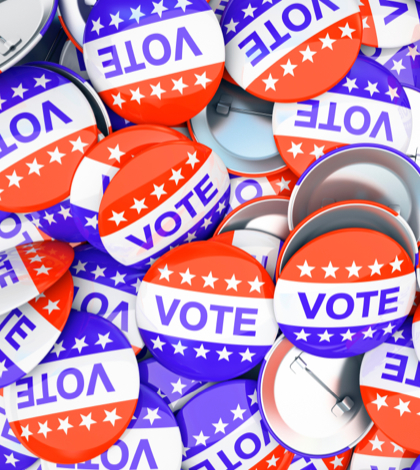Or would it? Technically, the measure only applies to two tribes in central California, but critics say it will make tribal gaming possible anywhere any tribe can buy land. Some of the state’s established gaming tribes are opposed to the proposal.
On the surface, Proposition 48 appears relatively straightforward.
If state voters approve the measure Tuesday, two gaming compacts negotiated between Gov. Brown and the North Fork Rancheria of Mono Indians in the San Joaquin Valley and approved by the state legislature will be left intact.
That would allow the tribe to build a casino on 305 acres next to Highway 99 in Madera, an economically strapped city north of Fresno.
There’s much at stake. Those compacts would give the North Fork tribe and its partner, the Wiyot Tribe in Northern California, 2,000 Las Vegas-style slot machines, the maximum amount allowed any California gaming tribe.
In exchange for sharing revenue from the proposed North Fork casino, Wiyot tribal members will agree not to build a casino of their own, according to the compacts.
That might seem simple enough, but there’s more involved in Prop. 48 than one Native American tribe trying to get in on the state’s tribal gaming industry, which generates an estimated $7.1 billion a year.
That’s because the North Fork tribe, while based in North Fork, a remote town near Yosemite, doesn’t have a reservation. Many of its nearly 2,000 members live in North Fork, but not on tribal land.
Conversely, the Madera property where the tribe wants to build its casino is land it bought and placed in a trust with the federal government. Though tribal owned, it’s not a reservation recognized by the U.S. government, which is why Prop. 48 is potentially such a major change for Native American gaming in California.
Should voters say yes to Prop. 48, the North Fork tribe would be given a green light to own and operate a casino on non-reservation land. That would be a direct contradiction of the agreement voters approved in 1998, and reaffirmed in 2000, that Native American tribes would be allowed to have casinos only on their reservations.
Critics of Prop. 48 argue that the measure would make possible off-reservation gaming and greatly increase the amount of gambling in the state. Rather than the 60 Native American-owned casinos that currently operate in the state, mostly in out-of-the-way locations, casinos could pop up anywhere a tribe could buy land, even in the middle of a major city.
Backers of Prop. 48 dismiss that idea, saying a casino in or near any urban area would face overwhelming opposition, but one economist is not sure.
“I don’t think it’s impossible that could happen,” said Chris Thornberg, principal with Beacon Economics in Los Angeles, which has conducted financial studies for several of California’s Native American tribes. “It would never happen in Ontario or Pasadena, but a place like Commerce or the City of Industry might go for it. They would see it as a way to make money.”
Cheryl Schmit, director of Stand Up For California, an anti-gaming group, agrees.
“Absolutely it sets a precedent,” Schmit said. “You have the governor and the state legislature saying it’s OK, and from there you get off-reservation gaming everywhere. The ‘reservation-only’ restriction would be reversed.”
Schmit, whose non-profit organization has pushed since the mid-1990s for strict limits on Native American gaming, argues that the state has been overrun with casinos.
In 1998, less than 40 tribes had casinos; today, that number is up to 60, and about 45 tribes are petitioning the state to start their own gaming facilities, Schmit said.
“We’re to a point where we can’t get the toothpaste back in the tube,” Schmit said. “I’m afraid we’re going to see more casinos, and they won’t be as regulated as they have been in the past.”
Two of the state’s highest-ranking lawmakers, Gov. Brown and Sen. Dianne Feinstein, both Democrats, are split Prop. 48. Gov. Brown supports it, but Feinstein has said, that California voters shouldn’t “open the floodgates” to more gaming.
Some of Prop. 48’s strongest opponents are the state’s established gaming tribes.
In a televised political advertisement, Mark Macarro, chairman of the Pechanga Band of Luiseno Indians in Temecula, called Prop. 48 a potential “breach of trust” between established gaming tribes and state voters, who were promised that Native American gaming would never be allowed anywhere except on reservations.
While urging a no vote, Macarro also accused out-of-state gaming interests of being behind the proposal, while never mentioning the North Fork tribe by name.
“Proposition 48 would allow a Nevada gambling company to use a rural tribe to build a casino on off-reservation land,” Macarro said during the advertisement, which aired during prime time last week, including Game 7 of the World Series. “[Prop.] 48 would set a bad precedent. You trusted us to keep our word, and we honor that trust.”
But would Prop. 48 really allow Native American gaming in densely populated areas? Not according to one of the state’s leading gaming authorities, who said any gaming tribe that tried to put a casino in a heavily populated area would face strong opposition, starting with the city where it was trying to locate.
“I don’t see this leading to a lot of off-reservation shopping by tribes,” said I. Nelson Rose, a professor at Whittier Law School and a specialist in gaming and gaming law. “I don’t see Prop. 48, if it passes, establishing a precedent. To get a casino built in an urban area a tribe would have to win over everyone – the city, the state legislature, the governor – and that would be difficult to do.”
Since the start of Native America gaming, off-reservation gaming has happened only “3-5 times” in the United States, and never in California, Rose said.
“The Los Coyotes tribe [in San Diego County] has been trying to build a casino in Barstow and that has never gotten off the ground,” said Rose, who has consulted for several California gaming tribes. “I don’t think Prop. 48 applies to anyone except those two tribes. It’s a special circumstance.”
 IE Business Daily Business news for the Inland Empire.
IE Business Daily Business news for the Inland Empire.


